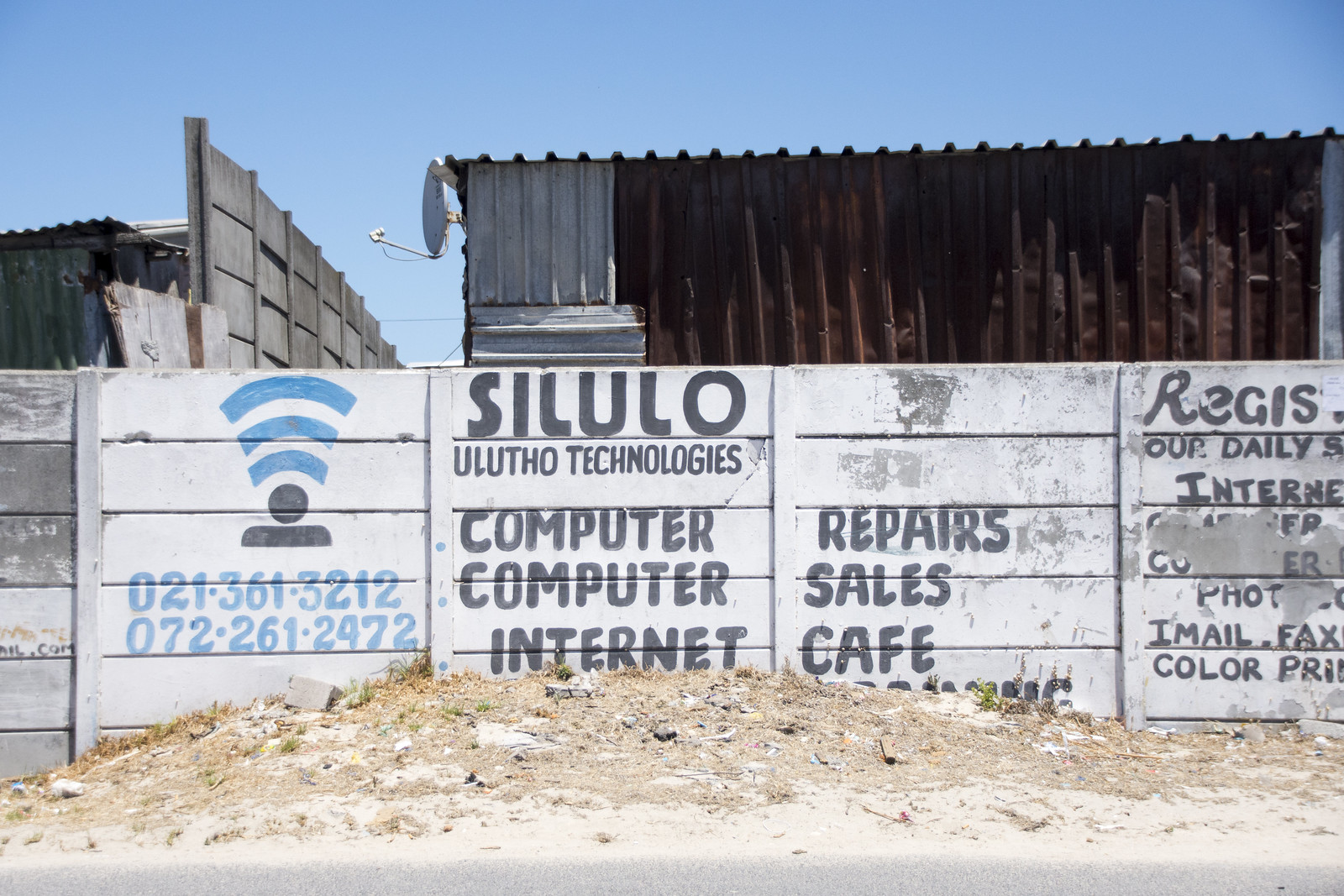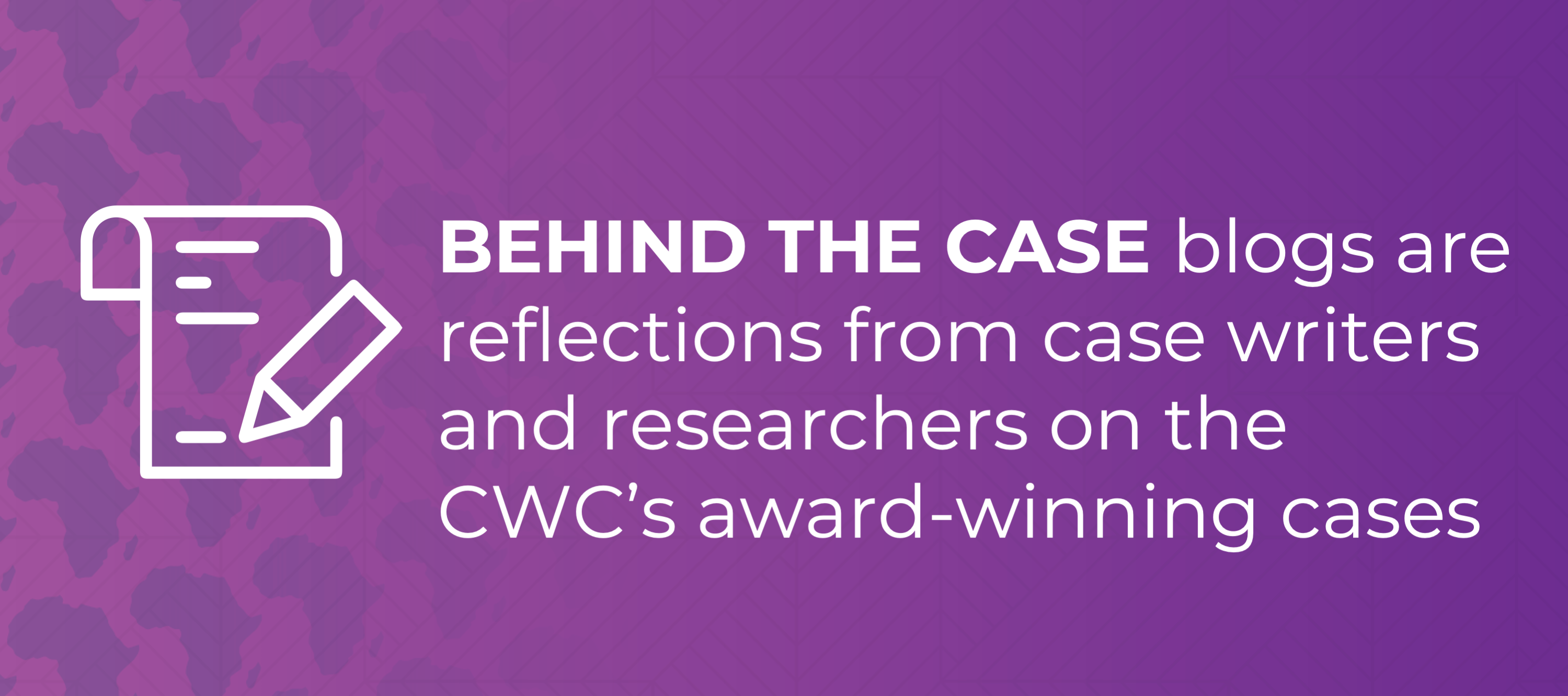
"Scaling a social enterprise in South Africa” is the second of two award-winning cases from the CWC on the information and communications technology (ICT) company Silulo Ulutho Technologies. Silulo established itself in the 2000s as a social enterprise dedicated to bridging the digital divide in South Africa's townships and rural areas by providing training and access to technology for small businesses and job-seekers. By 2019, Silulo had expanded its offering to include a host of digital and technical support services for small businesses and individual career support services.
The case focusses on the challenges that arise for Silulo in the wake of this expansion, which included the addition of a franchise model for their in-township shops. Silulo appears to have grown too much, too fast, and a major investment from a strategic partner hangs in the balance.
This Silulo case is the product of graduate research by James Chiswell, GSB MBA class of 2019, co-written with Professor Warren Nilsson, Professor Geoff Bick, and Sarah Boyd. Here, James reflects on his research process and what it was like to develop the teaching case, which won the 2020 EFMD Case Writing Competition in the Inclusive Business category.
Get the case from The Case Centre.
***
The initial inspiration for the case arose from meeting CEO Luvuyo Rani during a podcast interview arranged by the GSB. During that interview in July 2019, Luvuyo spoke candidly about the recent struggles of trying to grow the business in an extremely uncertain and challenging economic and social context. In addition, he informed me that a potential investor had recently backed out of funding the next phase of growth due to concerns over the financial position of the business.
I approached Luvuyo following the interview to try and understand more about the recent headwinds that he and the directors of Silulo had faced. I immediately felt a connection with him and what convinced me to pursue a case on Silulo was just how willing and honest Luvuyo was when talking about his business. An hour’s meeting soon turned into three hours, and could have easily gone on for longer. I was drawn to his openness, enthusiasm and positivity, in what was in hindsight, an extremely difficult situation for the company. This was what ultimately made for such an insightful and deeply stimulating case; the honesty and self-awareness of the directors provided the perfect foundation to build from.
Given how much information I had from the candid nature of my interviews, the most challenging part of the process was deciding what not to include in the case. I felt very fortunate to be in the position of having too much data to work with but conversely, it became a slight hindrance in deciding how to focus the case. I must pass a lot of the credit of this particular aspect to the Case Writing Centre, who helped me to decide which direction to take it, focusing on social franchising and investment readiness in particular.
I had to remain as objective as possible in presenting the situation so that the case readers are merely provided with the facts and a degree of impartiality in order to give them the best possible opportunity to decide for themselves which route and choices they would make if they were the business owners.
James Chiswell
The other major challenge that I faced was the fact that during my writing of the case, Silulo already decided how they were going to proceed as regards scaling the business, and which divisions were going to be closed or less of a priority. I therefore had to ensure I was not swayed by any of the decisions that the business had already made. Instead, I had to try to remain as objective as possible in presenting the situation so that the case readers are merely provided with the facts and a degree of impartiality in order to give them the best possible opportunity to decide for themselves which route and choices they would make if they were the business owners.
It is my hope that the case highlights the undeniable talent and entrepreneurial spirit of previously marginalised black South Africans, allowing some to deepen their knowledge and understanding of the developing world in general, and for others, I hope it contributes to inspire a new generation of local entrepreneurs and businesses in these markets to shift the economic and social landscape of the world more broadly.
The case helps to showcase the immense opportunity there is in closing the skills gap in underserved communities throughout the world. I hope it acts to not only inspire but also to provide a framework of what works and what doesn’t when trying to scale and grow a business of this nature, and what needs to be considered before doing so. I believe that if the case is able to serve as a guide in this context, it would be the most fitting legacy of the honest nature of the founders’ stories and experiences, and the generosity of the time they gave to me as the author. I genuinely feel it is exactly for that reason that they were so willing to open up with me; a passion for serving the underserved and wanting people to learn from their many successes, as well as failures and shortcomings. Whether it is in the classroom of a business school or teaching their students the basics of computer literacy, educating people is in Silulo’s DNA. The case will therefore serve as an extension of what drives everyone at Silulo day-to-day in the townships and rural areas of South Africa; a chance to personally learn and develop in whatever context that may be.



















